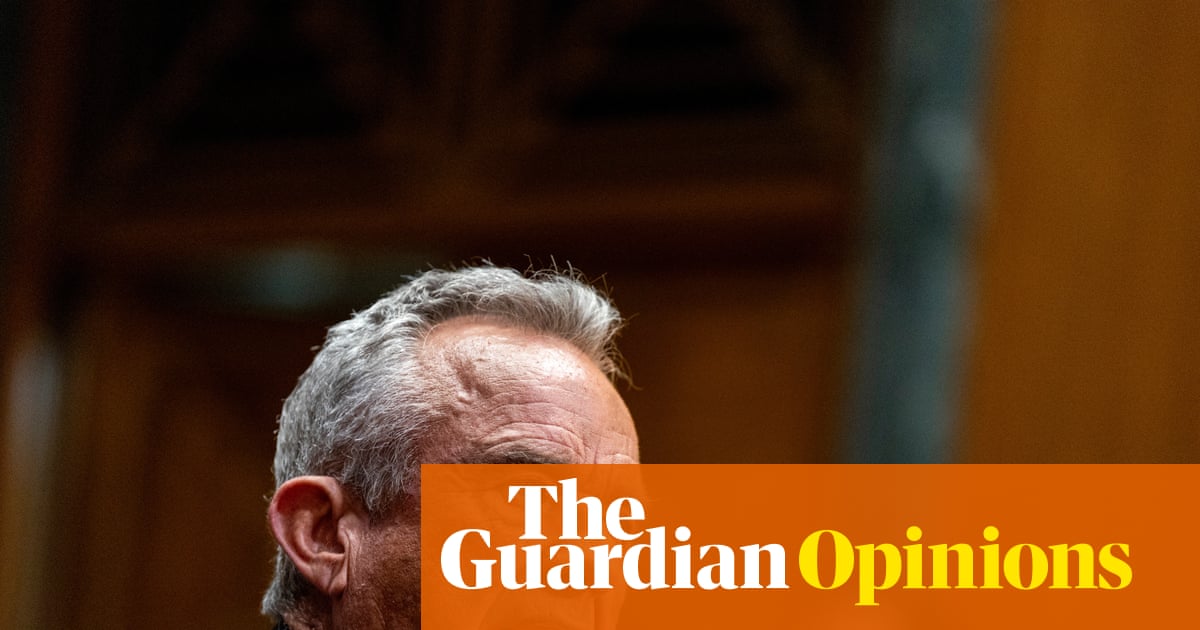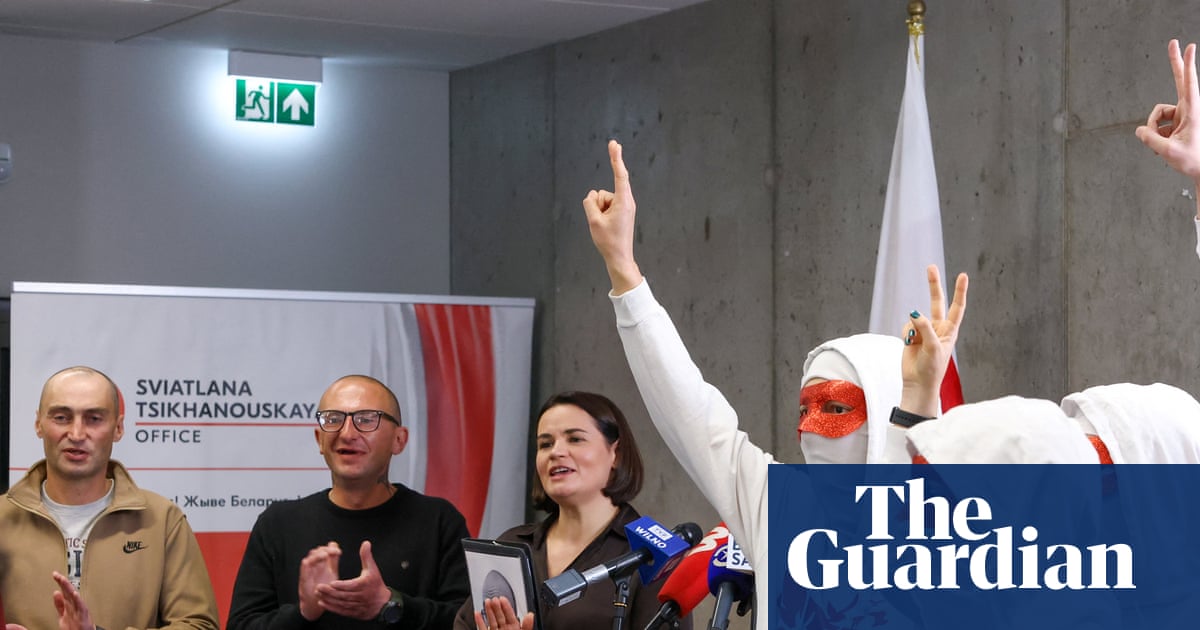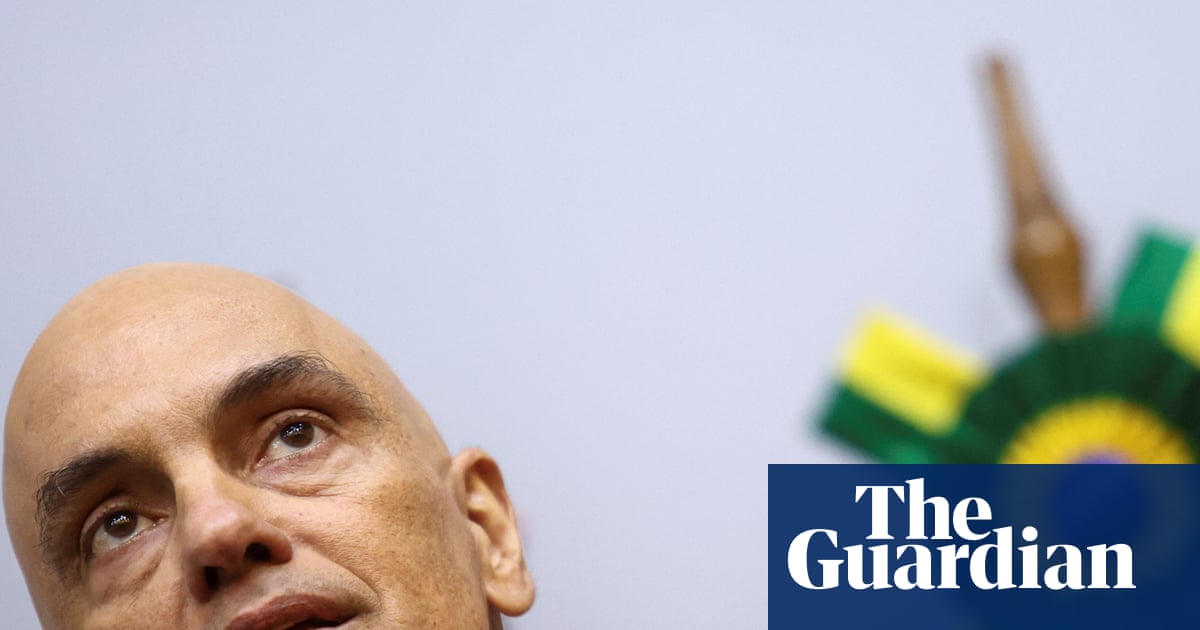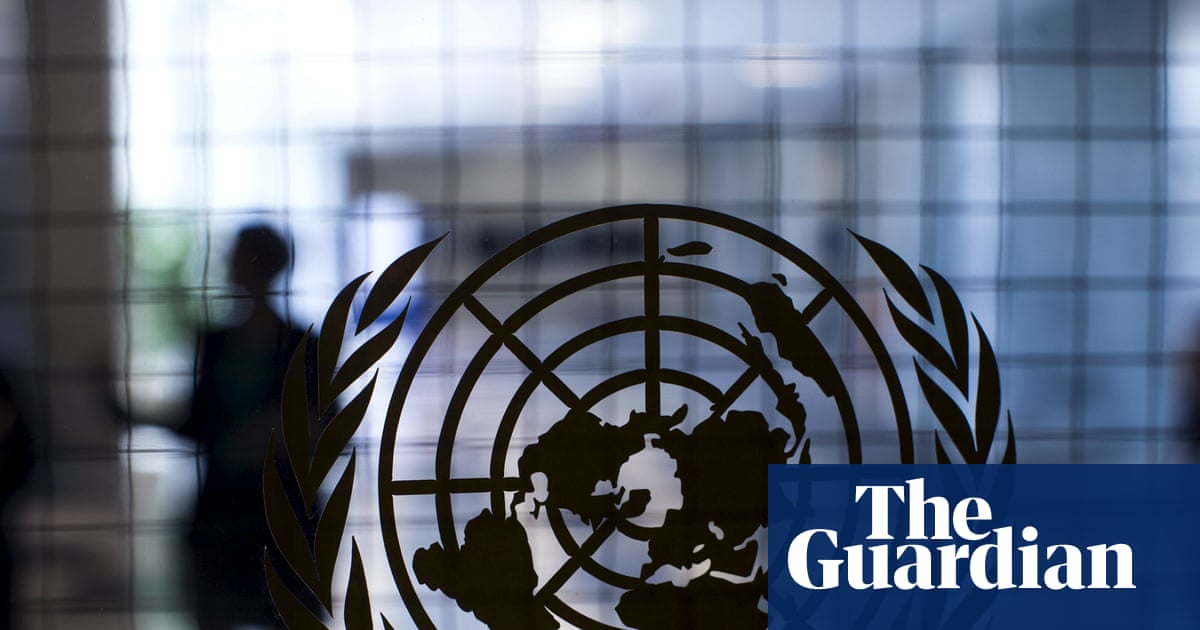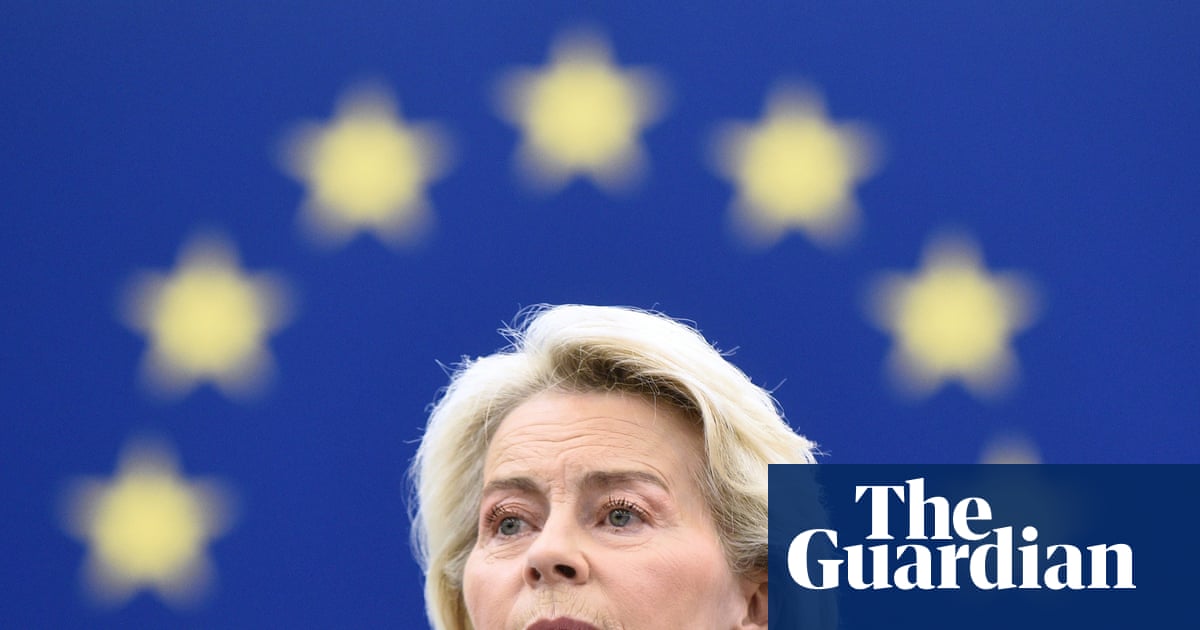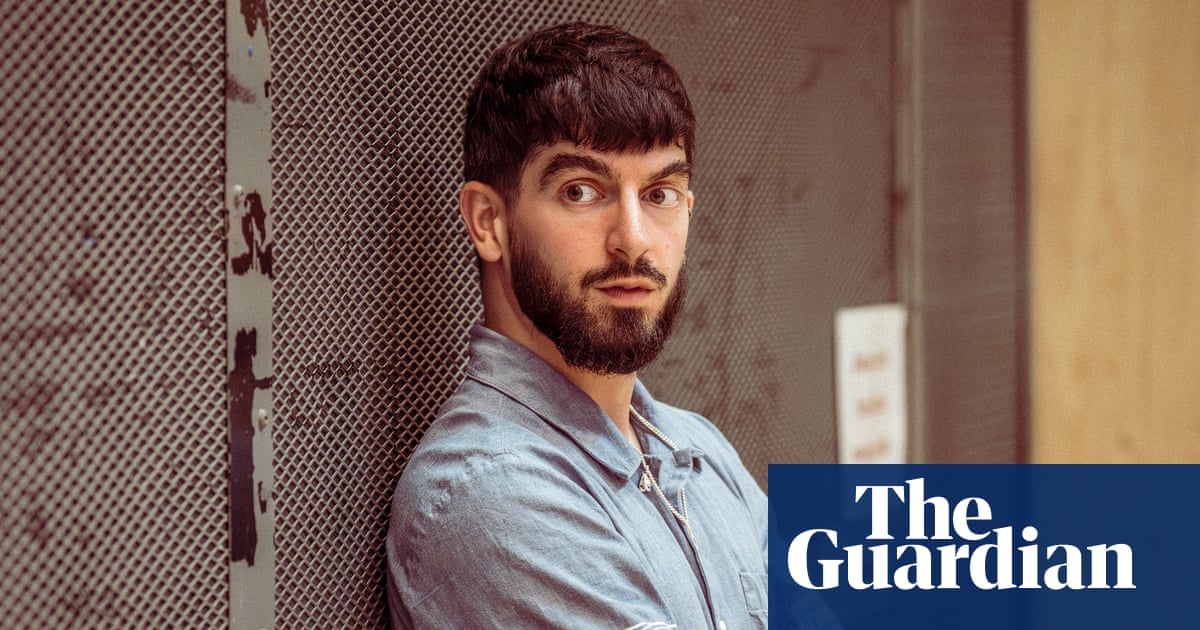‘I think what Trumpism is about, is an understanding that the system in America is not working for working-class people,” says Bernie Sanders, sat in the Guardian’s offices in London. “In a phoney, hypocritical way, Trump has tapped into that. His quote-unquote ‘solutions’ will only make a bad situation worse.”
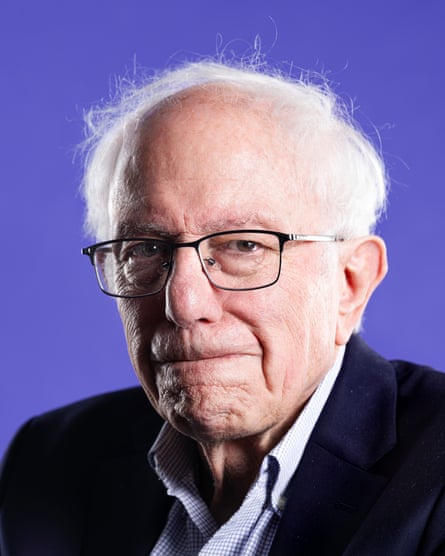
In person, Sanders’ 83 years read differently than in photograph, perhaps because of how conversational he is. His voice is magnetic – a Brooklyn accent that feels both warm and tough. “But what I have been aware of, and I’ve talked about it for years, is that in America, the very richest people are doing phenomenally well, while 60% of our people live paycheck to paycheck.”
Later, he will say the same thing to an audience in London – only with more emphasis and passion. “Sixty per cent. Six-zero. Do you know what paycheck to paycheck means?” It’s exhilarating to hear Sanders speak to a crowd: his zeal is reflected back in their faces, his moral clarity is such a relief, set against the cynicism and resignation of most of the Democratic party’s opposition to Trump and his administration. Class war is as old as time, but it’s a peculiarity of this age that you rarely hear a politician name it. “I do,” he tells me. “There is a class war going on. The people on top are waging that war.”
It’s a look at what could have been. Sanders ran, of course, to be the Democratic presidential candidate in 2016, and again in 2020. The first time, there was a real sense, in the US and abroad, that something incredible might happen: that someone with “almost no name recognition,” he says, a senator from the small state of Vermont, might successfully challenge Hillary Clinton, whom the party had already anointed. We all know how that worked out. Was it the greatest disappointment of his political life? “Well, you’re too busy to feel things,” he says. “You’re just working very hard.”
What is absolutely unequivocal is his criticism of the Democrats. The party, he thinks, lacks any real progressive promise. “What they say is, ‘The status quo is working pretty good, and we will tinker around the edges’, and that is not a message that resonates with working people”. He refuses to indulge in any personal ill-will towards Joe Biden or Kamala Harris. The most he’ll voice is a weary resignation about 2020, when his campaign “won the first three states, primary states, in terms of popular votes. Then the Democratic establishment made sure the other candidates dropped out, and they rallied around Joe Biden. You know, that’s the world that we live in. We are taking on not just the Republican leadership, we are taking on a Democratic establishment which is tied to elements of corporate America.”
During the 2024 election, he “worked very hard to see that Kamala Harris was elected. I was all over the country and was one of her major surrogates. We begged our campaign to start talking about the needs of working people. But their consultants and the money people behind them thought of another strategy, showing that she was more conservative, that she worked with people like Liz Cheney, worked with Republicans, had billionaires going out and saying that she’s wonderful. They thought that was the right approach. I did not think that was the approach, and I was public about that.” He pauses, and not for effect: it’s hard to relive November 2024. “But my voice did not carry,” he says.
Sanders started his political life in 1981, when he was elected mayor of Burlington, Vermont. His brother, Larry, is 90 and lives in Oxfordshire. He stood as a Green candidate in David Cameron’s old parliamentary seat in 2016. In a speech that year, supporting Sanders as the Democratic nominee, Larry gave a brief portrait of their parents. “Eli Sanders and Dorothy Wexford Sanders. They did not have easy lives, and they died young,” he said. Dorothy was born in New York, to Jewish immigrant parents fleeing Russian pogroms. Eli arrived in the US in 1921, most of his family remaining in what is now Poland and what was then Austrian Galicia, to be “wiped out by Hitler,” Sanders has said in the past. Eli worried constantly about providing for his family and both he and Dorothy were political, Larry said in the speech: “They loved the New Deal of Franklin D Roosevelt, and would be especially proud that Bernard is renewing that vision.”
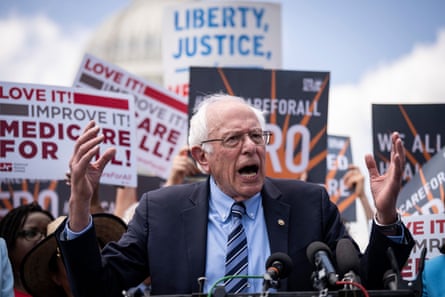
Sanders’ charge to the Democrats now is twofold. “Their weakness is, I think, that their credibility is now quite low. And they don’t have much of a message for working people, other than to say Trump is dangerous. I think that’s just not enough.” He point blank refuses to get into Trump’s administration – its excesses, surprises, non-surprises, without first walking through everything that was already wrong with the US. “What the Democrats have to absolutely make clear is this: we’re going to take on the billionaire class. They’re going to start paying their fair share of taxes. We’re going to have healthcare for all people as a human right. We’re going to have a strong childcare system that every American can afford. We’re going to make public colleges and universities tuition-free. We’re going to create millions of jobs transforming our energy system away from fossil fuel. We’re going to build housing – boy, housing is like it is here, just a huge crisis. We’re going to build millions of units of low-income and affordable housing. Do Democrats say that? No.”
That Sanders will not be drawn on every new Trump calumny, instead focusing on an economic reality that’s been worsening for decades, does help him keep on course. And it definitely doesn’t stop him giving Trump both barrels. “We don’t usually have presidents suing the media, threatening the media if they write bad stories about them. We don’t usually have presidents threatening to impeach judges. We don’t have presidents suing law firms. You add all that together, it is a movement for authoritarianism.” Is it worse than he predicted? I was thinking specifically about the extrajudicial detentions and deportations, students dragged off campus and held for weeks, perfectly legal migrants sent to El Salvador, when they weren’t even from there. “First time around, Trump was not as well organised. They’ve had four years to get their act together, so to speak. And that’s what this Project 2025 document was about.”
Project 2025 was a document published by rightwing thinktank the Heritage Foundation in 2024, offering a terrifying vision for a second Trump term. An outright proposal to dismantle the US government, it was a roadmap to crackdown on immigration, LGBTQ+ rights, abortion rights – as well as being against action on the climate crisis and against vaccines. If it looked like a blueprint for The Handmaid’s Tale and The Road combined, none of the alarm last year could ever have encompassed the reality that would come. Among many other things, the Trump administration would go on to deport people without due process, and then ignore a supreme court ruling that an 18th-century wartime declaration about “alien enemies” was not a proper legal instrument.
I ask a question about who funds the Heritage Foundation – as it keeps all donations secret, which raises questions about whose interests Project 2025 is really serving. His reply is impatient: “It doesn’t matter who it is they have. There’s no lack of well-paid, right-wing consultants and intellectuals who can move this country to an oligarchic authoritarian society.” His tone is clear – stop getting lost in detail, stop looking for hidden connections, stop messing around and start fighting.
“One of the frightening aspects of what’s going on is the degree to which the establishment-type folks have caved in, and so quickly,” he says. “That was much less the case, during Trump’s first term.” He mentions Jeff Bezos, “who one had assumed was kind of a moderate Democrat”, losing his editorial board because they were going to endorse Kamala Harris. “Same thing in the Los Angeles Times. When you have ABC agreeing to a settlement with Trump; the bogus lawsuit against CBS that Paramount are negotiating right now. When you have major, billion-dollar law firms saying, ‘OK, we plead guilty to having clients who went to court against you and your friends, that was a terrible crime, we’re going to give you millions of dollars.’ Harvard has buckled up a little bit and appears not to be caving in, but a lot of universities have. None of this was the case eight years ago. They are creating the overall mentality that it will be dangerous to be strongly critical of Donald Trump.”
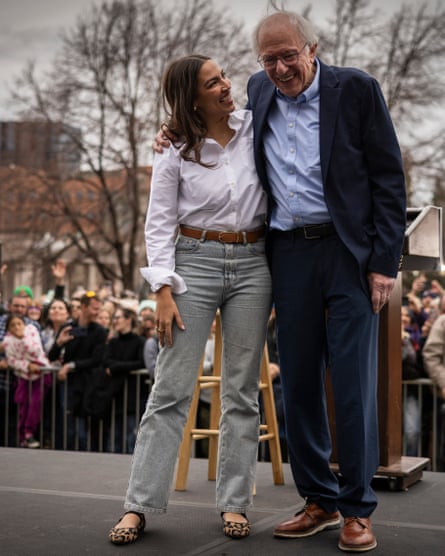
In other areas, money is talking so loudly in politics that it’s all you can hear. Sanders has used Gaza as an example when he says that politicians are afraid to speak out on Israel’s actions in case Super Pacs – which can put forward unlimited amounts of money for a candidate – will penalise them at the next election. Today, he says it’s not just Gaza, but a host of other issues. “If you say, ‘Do you really think it’s a good idea to cut Medicaid and give tax breaks to billionaires? Do you really think that climate change is a hoax?” there will be a number, not a majority, but a number of Republicans who would say: ‘No. But if I stand up and vote ‘no’, the next day, Elon Musk would say, “All right, you are going to be primaried [a candidate will be fielded against you], and Trump will support your opponent. I will put unlimited sums of money to elect your opponent.”’ Good luck to you.’”
While that pattern is undoubtedly visible across many issues, the example of Gaza is particularly stark – with groups such as Aipac, funded by pro-Israel billionaires, putting tens of millions of dollars against congressional candidates, mainly Democrats, that it did not deem to be sufficiently supportive of Israel in the run-up to 2024. As the atrocities in Gaza leave many in civil society dumbfounded, what is the long game here, I ask. “That’s a difficult question, and I don’t know the answer. I will tell you that the United States has had a long-term relationship with Israel, and there are many people who have intellectually chosen not to understand that Netanyahu does not represent the Israel of 20 years ago. The moderate democratic society is now controlled by right-wing racist extremists who have done, and are doing today, absolutely horrific things to the Palestinian people in violation of American law and international law. They refuse to recognise that.” In Dublin, he was heckled for not using the word genocide, and some US progressives were dismayed, two years ago, when he didn’t call for an immediate ceasefire. He speaks out now, choosing his words carefully; he’s not on the fence.
Since the end of March, Sanders and Alexandria Ocasio-Cortez (he always calls her that, never AOC), have been holding campaign rallies all over the US from Arizona to Utah. They are deliberately not skipping the diehard Democratic states – but have been more surprised by the numbers they’ve been getting in red states. “This is not a campaign. This is a political rally, and I think the numbers are almost unprecedented. Large numbers of people, including in conservative areas, do not want to see oligarchy in America, do not want to see authoritarianism, do not want to see massive tax breaks for the rich and cuts to the programmes that working-class people desperately need.” Sure, he and AOC sometimes disagree, “my wife and I disagree on issues! But Alexandria, I think, comes pretty much from where I come from.”

He has hope for the future, too. There are a couple of dozen people in the house Progressive Caucus – a 98-strong group of the more left-wing members of the Democratic party in Congress – that are “strong progressives”, he says. “Alexandria is maybe one of the most articulate and charismatic, but there are others there as well.” Ilhan Omar, Ayanna Pressley and Rashida Tlaib to name a few.
Sanders is clear that he and Ocasio-Cortez are not trying to start a third political party. Instead, they’re “trying to build a grassroots movement of working-class people and young people … If you’re seeing candidates now arising who are progressive, that’s down to a lot of the work that we are doing for the 2026 midterms.”
Sanders in person is very much as he is in his book, It’s OK to Be Angry About Capitalism, in which he lays out some principles, among them, “wars and excessive military budgets are not good”; “carbon emissions are not good”; “racism, sexism, homophobia and xenophobia are not good”; “exploiting workers is not good”. It’s really the sight of him igniting a crowd that’s so hopeful, which holds for him, too – he keeps his optimism because he has the “fortune of being able to go around the country and speak to large numbers of wonderful people”. The message doesn’t change, though – it doesn’t have to be new: it just has to be true.
As he leaves to make his way upstairs to the photography studio, he strides on ahead, his wife Jane O’Meara Saunders, an activist herself, making small talk with me in his wake. It’s not that he’s performing vigour in an era where politicians’ ages are relentlessly analysed. It’s just his manner – all this urgent change should have happened yesterday.

 3 months ago
55
3 months ago
55
